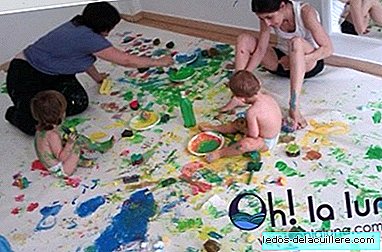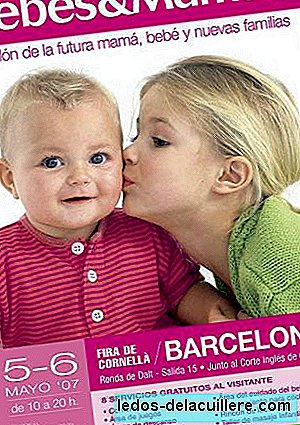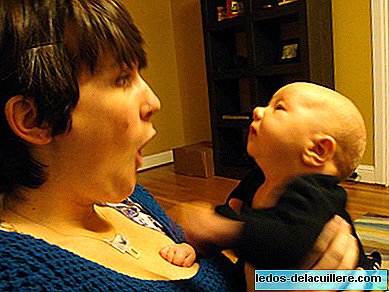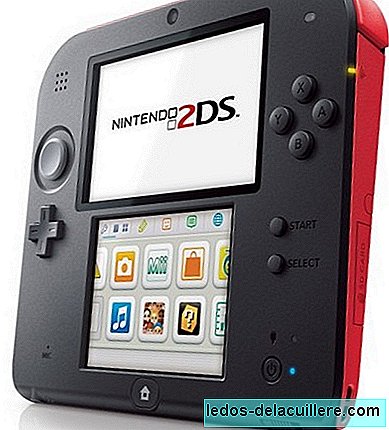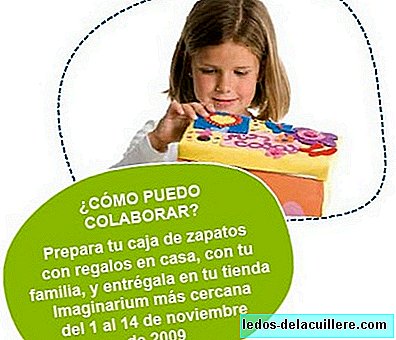
Start these days the II Annual Campaign “Solidarity Children” of Imaginarium in collaboration with the Antena 3 Foundation and Messengers of Peace, which is based on sending toys from developing countries to developing countries (poor countries, come on), during Christmas and Kings.
The children have to decorate a shoe box in which they will put the toy or toys, specifying if it is for a boy or girl, and take it to Imaginarium between the day 1 and November 14.
At first glance everything sounds very beautiful, however sometimes I wonder (maybe I am getting old or badly thought): To what extent should we do solidarity campaigns of toys?
We Westerners have long suffered a great illness that involves believing the navel of the world. We believe that everything we do, everything we have and the way we live is the best possible, the most advanced and the rest of mortals should aspire to.
Everyone who does not live like us, or is a strange and antisocial person, or has no resources to live in this way, but seems difficult to understand.
The fact is that, although it may seem a lie, children in poor countries smile and probably share more than our children do. They learn to be happy in spite of everything and they learn to live with what they have, because they can't have more and because, simply, They don't need much more.
That is why the message we give to our children: "we are going to send toys for poor children, who do not have money to buy them" is shocking to me, first because I do not know what a child can do with what European toy (a red plastic car, a toy that goes to batteries or an action man, to put some examples ...) and second because the children of the developing countries they don't need these toys to be happy.
Ours neither
True, our children do not need toys to be happy, however, in the society in which they live, it is unthinkable for a child to grow up without toys.
There is no toy gene, they are not born needing material things. It is we and our consumer society that impose, little by little, the need to have material goods and the need to desire them.

Children without resources from poor countries do not have this need because they are able to play and have fun without toys (or they do it with the ones they build themselves) and it is for this reason that it seems even cruel to put a grain of sand to help make these children feel that to be happy they need to have toys like ours.
But children have to learn to be supportive, right?
Of course, but children do not have to be in solidarity with poor countries to wash the image of adults that we are not, and less so if with this solidarity we create needs in those who do not have them or if we make our children believe that we are happy thanks to what we have and that they are unhappy for not having it.
You can be supportive in a hundred different ways. It is not necessary to send things to other countries, but look in any corner of our big cities to find people with needs.
I go further, it is not necessary to even look for the beggar who asks in any corner, but to look at our closest relatives, our neighbors, our acquaintances, our friends and strangers because there are many situations in which someone may need our help (whether to lend a hand, be to offer a shoulder on which to cry, be to offer an ear to listen, be it…).
So, starting from our closest environment our children can learn what solidarity is.
Binta and the great idea
Binta and the great idea is a short film related to this theme that belongs to a film made by Unicef entitled "In the world every so often" that easily reaches the heart because it is beautiful and because it helps the western medium to know how children live in poor countries
It is directed by Javier Fesser and was part of the shortlisted for the Oscars. I recommend that you see it, because it is wonderful and because it helps to see the southern hemisphere from another prism.
The person who recommended this movie told me that her 5, 8 and 12 year old children had seen her with her and it seemed that a wide debate appeared in her house in which the words “needs”, “playstation”, “clothes” appeared brand ”, etc. The best is that that debate arose from his children and not from her.
The good life
I also recommend this story by Tony Mello that helps to think about this topic:
Enzo, a rich merchant from Puerto Ayacucho, visits the indigenous communities of the upper Orinoco and is horrified when he sees Orawë, a Yanomami indigenous man lying quietly in his chinchorro (hammock species), chewing tobacco.
- Why don't you go fishing? - Enzo asks. - Because I've already caught enough fish for today - Orawë replies. - And why don't you fish more than you need? - insists the merchant. - And what would I do with it? - the Indian asks. - You would earn more money. This way you could put an outboard motor in your canoe. Then you could go far in the river and catch more fish. And so you would earn enough to buy a nylon net, which would get you more fish and more money. Soon you would win to have two canoes and up to two engines and faster ... Then you will be rich, like me. - And what would he do then? - the native asked again. - You could sit and enjoy life - replied the merchant. - And what do you think I'm doing right now? - the Indian Orawë replied satisfied.
Conclusion
The initiative is very commendable. I find it wonderful to try to get children to learn what the word solidarity means, however it doesn't seem right to do so at the cost of "disrupting" the peace and happiness of those children who don't need toys to smile by creating the feeling that to be Happier need things like that.
We can show children how to be supportive and how to share acting ourselves as people in solidarity with those around us They need our help at some point. You only need to open your eyes and mind a little to find the moments and infinite possibilities that appear daily to help us.




